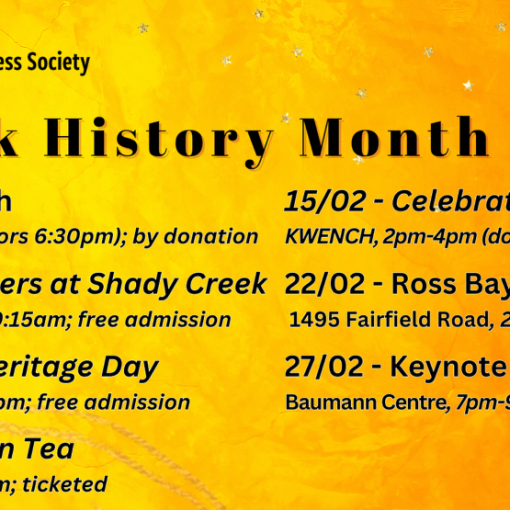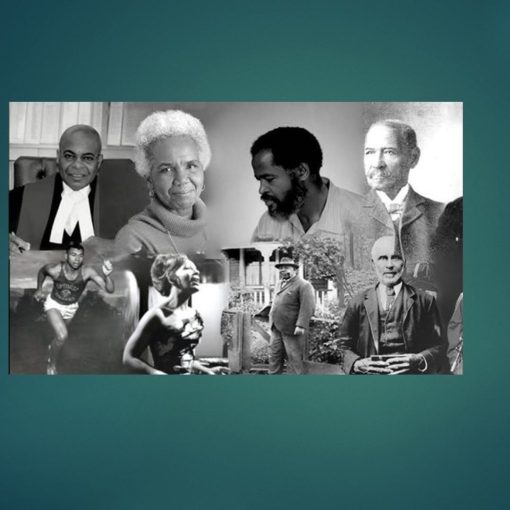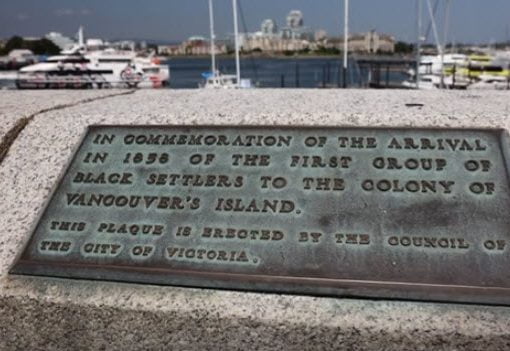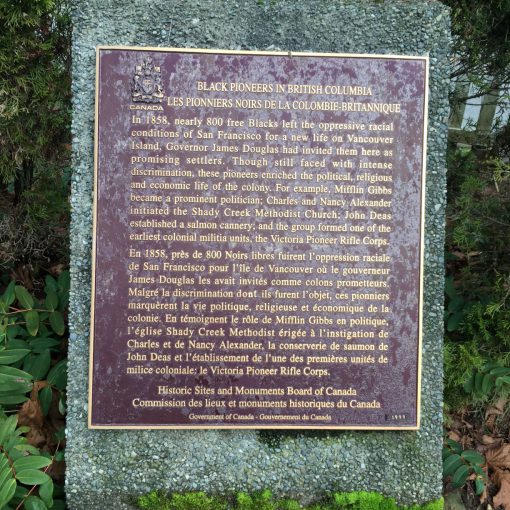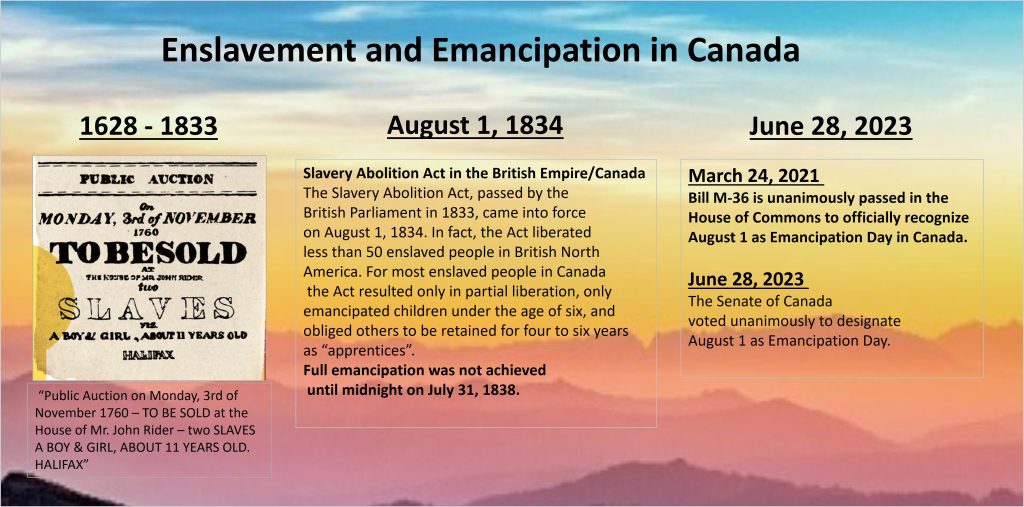
1628: Olivier le Jeune, about seven years of age, is the first person of African descent, that is known to have been enslaved in New France, on the land that is now part of Canada.
By 1790, an estimated 3,000 enslaved men, women and children of African descent had been brought into British North America. Government was not exempt from slavery’s influence. For example, six of the 16 members of the first Upper Canada Parliament and 14 of the 17 members of the second Parliament or their family members either enslaved Black people or were from slaveholding families.
The first colony in the British Empire to have anti-slavery legislation was Upper Canada, now Ontario. John Graves Simcoe, the first Lieutenant Governor of Upper Canada (1791–1796), passed an Act Against Slavery in 1793, which ended the importation of slaves in Upper Canada and manumitted the future children of female slaves at age twenty-five. BUT it did not free a single slave. It was superseded by the Slavery Abolition Act 1833.
—–
Organizations like BC Black History Awareness Society offset the failure to preserve and teach Black history and the marginalization of African Canadians by ensuring that all generations of African Canadians can learn and explore their heritage in publicly accessible events and resources. Emancipation Day is a time to remember our past and remember the people who fought for freedom. It’s a time to remember those who did not survive. It’s a time to remember our ancestors, upon whose shoulders we stand and be the shoulders for our youth of tomorrow.
In this article:
Emancipation does not mean Equity and Equality
United Nations Decades for People of African Descent
Impacts in Healthcare, Education, Employment
Juneteenth – Reflecting on June 19, 1865 in the United States
Emancipation does not mean Equity and Equality
For those who endured enslavement for centuries, this emancipation would have brought hope and optimism that Canada would be a respectful home and offer meaningful opportunities for their descendants to live, work and flourish. Recent reports explain that Black Canadians continue to experience racism, discrimination and prejudice in all areas of Canadian society including education, healthcare, housing and the justice systems.
This DAY is not just about honouring the past. It continues to have an effect on the lives of African Canadians today.
This DAY is about learning Canada’s collective history — not rewriting that history but telling a more complete history that includes the history of slavery. Even after emancipation, African heritage and history continues to be erased by methods of segregation, murder and systemic marginalization. Canadian history is taught in schools predominately from a Eurocentric perspective that omits or minimizes the human rights violation against African Canadians. Recognizing the Act to Abolish Slavery is a step forward in recognizing African Canadian history as part of Canada’s story and teaches the next generation about the shameful and forgotten parts of the past that must not be repeated.
Slavery and segregation created circumstances of marginalization, a cycle of unequal access, lost opportunities and systemic poverty. Even after slavery was abolished in Canada, African Canadians continue to be devalued and with subpar health care, education and lack of employment opportunities. Communities were legally segregated, creating significant barriers to success. Even though segregation is no longer legal, African Canadians continue to experience systemic anti-Black racism through social exile, through significant economic disparities and through active discrimination. This history gives context to the current circumstance of poverty and violence. Where this context is not provided, poverty and violence are dismissed as individual issues rather than being accurately understood as systemic issues.
A big part of recognition of this DAY is talking about the many segments of Canada’s past that often do not make it into mainstream history-class curricula.
Taking the time to learn about our robust history reveals stories of resilience, victories and communities coming together. Recognition leads to understanding and education, which can then lead to action.
For far too long, the stories of the enslaved and their descendants have been kept alive solely in Black communities. It is time to teach all our children this part of Canada’s history so that we can begin the reparations necessary to address modern-day anti-Black racism and the impact of that racism. There have been calls for an official apology to the descendants of slaves, to bring this issue to the forefront of Canadian consciousness.
This DAY is also about reflecting on our present, taking the time to examine the current circumstances and remembering why Black lives matter. When we talk about intergenerational trauma within African Canadian families, we are looking at generations of trauma stretching back to times of slavery, pre-1834. Tying our present to our past is a way of recognizing how slavery and segregation are actually the roots of anti-Black racism.
This DAY is also about preparing for our future. It is in this preparation and fight for equality that we will prepare the younger generation for success. The United Nations DECADES for People of African Descent calls for recognition, justice and development.
United Nations Decades for People of African Descent
The first International Decade was declared in 2014 and spanned the ten years from January 1, 2015 to December 31, 2024. The Second Decade for People of African Descent, 2025 – 2034 was declared on December 17, 2024. The themes continue to be Recognition, Justice and Development with the overall goal – to promote and protect human rights. “The first International Decade, while a significant milestone, fell short in delivering transformative change.” UN Human Rights Office of the High Commissioner.
In October 2016 a UN Working Group at the invitation of the Canadian government, visited Canada. They met with federal and provincial government agencies including Global Affairs, Statistics Canada, Immigration, Public Safety, RCMP, National Defence, Correctional Services, and the Canadian Human Rights Commission as well as non-governmental organizations and academics. Their report, issued in August 2017, includes an Historical Overview of Canada, Demographics and 41 recommendations related to education, employment, housing, healthcare, justice systems, and policing.
From the conclusions “Despite Canada’s reputation for promoting multiculturalism and diversity, the Working Group is deeply concerned about the structural racism that lies at the core of many Canadian institutions and systemic anti-Black racism that continues to have a negative impact on the human rights situation of African-Canadians.“
For the SECOND DECADE, in a news release on December 18, 2024 the Canadian Government has said they welcome the adoption of a second International Decade. Canada’s statement
Impacts in Healthcare, Education, Employment
Public Health Agency of Canada, published in September 2020
Social determinants and inequities in health for Black Canadians: A Snapshot “aims to highlight how Anti-Black racism and systemic discrimination are key drivers of health inequalities faced by diverse Black Canadian communities.
The report issued by Statistics Canada in January 2023 “Early career job quality of racialized Canadian graduates with a bachelor’s degree, 2014 to 2017 cohorts” The article reports that today’s Black graduates are discriminated against in terms of jobs offered and pay received. “Two years after graduation, most racialized graduates reported lower employment earnings and fewer opportunities for career advancement than their non-racialized and non-Indigenous counterparts.”
Black Class Action Secretariat (BCAS), a national non-profit organization dedicated to improving the working conditions of Black workers across Canada’s public institutions.
March 21, 2025 – Federal court fails to deliver justice for Black federal public service workers. Public Service Alliance of Canada. “The court’s decision is a stark reminder that Black public service workers continue to be denied justice,” said Sharon DeSousa, PSAC National President. “The federal government has consistently stonewalled efforts to dismantle systemic racism within its own ranks and undermine the lived experiences of Black public service workers.”
Reflecting on June 19th, 1865 in the United States
In Canada, we celebrate Emancipation Day on August 1, the day the Slavery Abolition Act of 1833 started in effect. While Juneteenth is mostly considered an American holiday, those of African heritage in Canada and other nearby countries have recognized the importance of the day.
This year, Juneteenth takes on even more significance with the racist attacks on diversity, equity, and inclusion. Anti-DEI policies are being used to further erase Black history and accomplishments. Commemorations of the Confederacy, which fought to keep enslavement of Black people, are now being championed instead of opposed. We stand in solidarity irrespective of border or birthplace.
Juneteenth is an American holiday that celebrates the day that liberation of the enslaved peoples in the United States was actually realized.
The Emancipation Proclamation was issued by United States President Abraham Lincoln on January 1, 1863 and declared that all enslaved people in Confederate states in rebellion against the Union “shall be then, thenceforward, and forever free.”
On “Freedom’s Eve,” the evening of January 1, 1863, enslaved and free African Americans gathered in churches and private homes all across the US to hear the news that the Emancipation Proclamation had taken effect.
Unfortunately, the Emancipation Proclamation did not immediately free all or even most of the enslaved people. The proclamation only applied to places under Confederate control and not to slave-holding border states that were not part of the Confederacy or areas within the Confederate states already under Union control.
Arkansas, Texas, Louisiana, Alabama, Florida, Georgia, South Carolina, North Carolina, and Virginia, with some internal geographic exceptions, were left precisely as if the Proclamation had not been issued. That is, slavery was not abolished there. Over the next few years, these states were brought under the Emancipation order.
Texas was the last and one of the largest bastions of institutional slavery. Slavery continued there after January 1, 1863, primarily because there had been a minimal build-up of Union troops due to the absence of major Civil War battles. Plantation owners from other areas relocated to Texas, which they viewed as a safe haven for slavery, forcibly taking the people, they enslaved along with them.
Freedom finally came to Texas on June 19, 1865, when General Gordon Granger led 2,000 Union troops into in Galveston Bay and issued General Order No. 3, transmitting the message of the Emancipation Proclamation and declaring that the more than 250000 enslaved Black people in the state, were free by presidential decree. Celebrations broke out among newly freed Black people, and Juneteenth was born.
Still, not everyone was freed even then. The enslavers were a criminal and immoral group. A number of enslavers withheld the information of General Granger’s order from the people they enslaved until after harvest season.
In December 1865, slavery and involuntary servitude in America was formally abolished except as punishment for a crime with the adoption of the Thirteenth Amendment to the United States Constitution.
Although Juneteenth celebrates the legal abolition of slavery in the US, official continuation of the harms of slavery lived on after 1865 through laws enacted by Southern state legislatures starting in the 1870’s and into the 20th century. These are called “Jim Crow” laws. They disenfranchised African Americans and removed the political and economic gains they made after emancipation.
Jim Crow laws mandating racial segregation in all public facilities were upheld by the US Supreme Court in 1896 in the case of Plessy vs. Ferguson. That case adopted the discriminatory “separate but equal” legal doctrine concerning facilities for African Americans. This ensured that public education for Black people would be segregated and inferior. Schools and other public facilities for African-Americans, including transportation, were consistently underfunded compared to facilities for white Americans. Many times, there were no facilities at all for the Black community.
The legitimacy of segregation and Jim Crow laws was finally overturned in 1954. Official segregation of public schools was declared unconstitutional in the landmark case of Brown v. Board of Education. It took decades to fully implement the decision and, in fact, although no longer mandated by law, segregation in practice still widely exists. The remaining Jim Crow laws were officially invalidated by the passage by the US Congress of the Civil Rights Act of 1964 and the Voting Rights Act of 1965 – almost 100 years after the first Juneteenth was celebrated.
In addition to Jim Crow laws, the period following the formal abolition of slavery was exceptionally dangerous for the Black community. After the assassination of President Lincoln, his vice president, Andrew Johnson, a Southern Democrat, took over as chief executive. Johnson supported the efforts of the former white slaveholders to maintain the status quo, The Reconstruction period was supposed to be a time when those formerly enslaved would be provided with education, land, political office and rights to which they had previously been deprived. Instead, they suffered intense discrimination and deprivation. Thousands were lynched, hunted and assailed for such acts as voting, running a business, or simply trying to be part of the larger community. The Equal Justice Initiative (EJI) has a wealth of material on this period and the gruesome history of lynching.
Going back to 1866, in that year freedmen in Texas organized the first of what became the annual celebration on June 19. Juneteenth commemorations featured music, barbecues, prayer services and other activities. Black migration from Texas to other parts of the US spread Juneteenth tradition throughout the country. Juneteenth is also called Jubilee Day, Emancipation Day, Freedom Day, and Black Independence Day.
In 1938, Texas declared Juneteenth a holiday by proclamation. In 1979, it became the first state to make Juneteenth an official holiday through legislation. In the years after 1979, each other US state and the District of Columbia recognized the holiday in some way. Finally, in June 2021, the US Congress passed a resolution establishing Juneteenth as a national holiday. The resolution was signed into law by President Biden on June 17, 2021.
Local Juneteenth celebrations spread from Texas across the US South. They became larger organized events in the 1920s and 1930s, often centering on a food festival. During the 1960’s civil rights movement sit-ins and demonstrations, the Juneteenth celebrations tapered off while the community focussed on the continued effort to eliminate segregation. The celebrations grew in popularity again in the 1970s with themes of cultural recognition and justice.
Traditional parts of the Juneteenth celebration include public readings of the Emancipation Proclamation, singing traditional songs such as “Lift Every Voice and Sing”, and the reading of works by noted African-American writers, such as Ralph Ellison and Maya Angelou. Some Juneteenth celebrations also include rodeos, street fairs, cookouts, family reunions, park parties, historical re-enactments, and Miss Juneteenth contests.
While Juneteenth is mostly considered an American holiday, those of African heritage in other nearby countries have recognized the importance of the day. Families were brutally torn apart and scattered throughout the Americas by means of the Triangular Slave Trade. Slavery did not stop at state or national boundaries. Around 300,000 enslaved Africans were brought directly to the U.S. while many more arrived in the US from the Caribbean or Latin America. Estimates are that almost 4.5 million enslaved Africans arrived in the Caribbean and another 3.2 million in Brazil. Juneteenth is now seen as a general celebration of liberation of all families whose lives where harmed, not a celebration of a single event in 1865.
Many people do not know that Juneteenth has been adopted as a holiday in certain parts of Mexico. Juneteenth is celebrated by the Mascogos, descendants of Black Seminoles who escaped from slavery in 1852 and settled in Coahuila, Mexico.
Many Canadians celebrate Juneteenth, too. In recent years, Black and Indigenous families came together in Ottawa on June 19th to remember those lost to knife crime or killed by police. Some Canadian leaders advocate for the celebration of Juneteenth to highlight the work Canada needs to do to overcome the impacts and devastations of slavery.
Sadly, most Canadians believe that there was never slavery in Canada. Many Canadians dismiss white supremacy and believe systemic racism doesn’t exist. What is now happening in the United States is a wake-up call to the need to tell the full and truthful history. Celebrating Juneteenth can help bring a better realization of the past and the present.
Compiled from various sources

